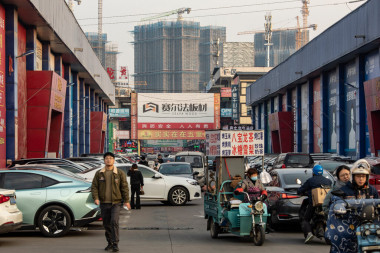What China’s E.V. City Says About the State of the Economy
Hefei has led the country in making electric vehicles and other tech products, but it still has not escaped a nationwide housing crisis.
Ultramodern factories churn out electric cars and solar panels in Hefei, an industrial center in the heart of central China. Broad avenues link office towers and landscaped parks. Subway lines open at a brisk pace.
Yet at Hefei’s market for construction materials, which fills 10 city blocks, local merchants are gloomy. Wu Junlin, a vendor of doors, has closed two of his three stores and laid off all but one of his dozen employees.
“I have been doing this for 20 years — after all these years, this year is the worst,” he said, sitting in his last store with no customers in sight.
Nowhere better showcases the opportunities and vulnerabilities of China’s economy than Hefei.
Government-directed growth in industries like electric vehicles and solar panels has turned China into the world’s export superpower, making Hefei a model for other Chinese cities. But a nationwide decline in real estate has devastated the finances of millions of families and small businesses — including in Hefei.
Hefei and nearby towns have become an E.V. manufacturing hub, with overall car production nearly tripling since 2019 and now exceeding Michigan’s. Hefei’s industrial policies have been so successful in nurturing technology manufacturers that the country’s central government has embraced tenets of what is known as the Hefei model.
Now so many cities are subsidizing electric vehicle factories that the industry faces severe overcapacity and heavy losses.
